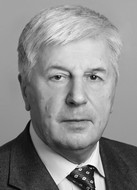Modern educational technologies for continuous post-stroke rehabilitation system
Фотографии:
ˑ:
Dr.Hab., Professor G.N. Ponomarev1
PhD, Associate Professor J.E. Firileva1
1Herzen State Pedagogical University of Russia, St. Petersburg
The study analyzes benefits of modern educational technologies for continuous post-stroke rehabilitation system, with a special emphasis on their design basics including the following: conceptual framework; practical content of the continuous post-stroke rehabilitation process; and the process technology as such. The conceptual framework provides a basis for the continuous post-stroke rehabilitation process geared to mobilize the individual adaptive abilities with the relevant nervous and hormonal factors as the process control mechanisms. Practical content spells out the educational technology objective and missions plus the rehabilitation methods and tools customizable to the individual needs and specifics of every person in need of the post-stroke rehabilitation. The educational technology should be designed with a due priority given to physical, mental, cognitive and communicative tools of the modern continuous post-stroke rehabilitation system, with all the tools duly harmonized by the relevant motor coordination and musical illustration components. And the process technology component is designed to secure the continuous post-stroke rehabilitation process with its models, educational and rehabilitation process control and management elements in the post-stroke rehabilitation period.
The study was performed in six health clinics in Saint Petersburg and Leningrad region in the period of 2014 to 2017, with 248 patients sampled for the study. The study data and analyses showed benefits of the modern educational technologies for the continuous post-stroke rehabilitation system.
Keywords: educational technologies, continuous rehabilitation, conceptual basis, practical and process technology components, physical, psychological, cognitive, communicative rehabilitation.
References
- Anokhin P. K. Ocherki po fiziologii funktsionalnykh sistem [Essays on Physiology of Functional Systems]. Moscow: Meditsina publ., 1975, 447 p.
- Bekhtereva N. P. Zdorovy i bolnoy mozg cheloveka [Healthy and diseased human brain]. Leningrad: Nauka publ., 1980, 208 p.
- Motylyanskaya R. E., Stogova L. I., Iordanskaya F. A. Fizicheskaya kultura i vozrast [Physical culture and age]. Moscow: Fizkultura i sport publ., 1967, 280 p.
- Pavlov I. P. Dvadtsatiletiy opyt ob'ektivnogo izucheniya vysshey nervnoy deyatelnosti (povedeniya) zhivotnykh [Twenty years of experience in objective study of higher nervous activity (behaviour) of animals]. Col. works: In 6 vol. 2 nd ed., sup. Moscow-Leningrad: AS USSR, 1951, vol. 3, vol. 1, pp. 253–274.
- Sechenov I. M. Refleksy golovnogo mozga [Reflexes of the brain]. Moscow: AS USSR publ., 1961, 100 p.
- Firileva J. E. Adaptivny fitnes v neyromotornoy reabilitatsii cheloveka [Adaptive fitness in neuromotor rehabilitation in man]. Moscow: ANS publ., 2015, 250 p.
- Firileva J. E., Ponomarev G. N. Strukturnye komponenty pedagogicheskoy sistemy nepreryvnoy reabilitatsii pri insulte. [Structural components of educational system of continuous rehabilitation in stroke]. Mater. III Vseros. nauch.-prakt. konf. 'Fizicheskaya reabilitatsiya v sporte, meditsine i adaptivnoy fizicheskoy kulture' [Proc. III nat. res.-pract. conf. 'Physical rehabilitation in sports, medicine and adaptive physical education']. June 16–17 2017. St. Petersburg: PU publ., 2017, pp. 27–30.




 Журнал "THEORY AND PRACTICE
Журнал "THEORY AND PRACTICE